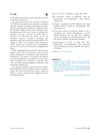 June 2024 in “Bőrgyógyászati és Venerológiai Szemle”
June 2024 in “Bőrgyógyászati és Venerológiai Szemle” New treatments for hair loss, like JAK inhibitors, PRP, anti-androgens, and minoxidil, offer better options.
 May 2011 in “Value in Health”
May 2011 in “Value in Health” CP-690,550 significantly reduced itching in patients with moderate-to-severe plaque psoriasis.
 September 2023 in “Journal of the American Academy of Dermatology”
September 2023 in “Journal of the American Academy of Dermatology” Topical tofacitinib helped a man with severe scalp condition after other treatments failed.
[object Object] 7 citations,
November 2018 in “British Journal of Dermatology” Alopecia areata is caused by immune system issues, and JAK inhibitors might help treat it.
 January 2024 in “American journal of clinical dermatology”
January 2024 in “American journal of clinical dermatology” Ritlecitinib is safe and well-tolerated for treating alopecia areata in patients aged 12 and older.
 November 2024 in “Medicina”
November 2024 in “Medicina” Recognizing scalp symptoms in PRP is crucial for proper diagnosis and treatment.
 16 citations,
January 2017 in “Acta dermatovenerologica Alpina, Pannonica et Adriatica (Tiskana izd.)”
16 citations,
January 2017 in “Acta dermatovenerologica Alpina, Pannonica et Adriatica (Tiskana izd.)” A patient with complete hair loss regrew all her hair using tofacitinib.
 6 citations,
June 2016 in “Experimental Dermatology”
6 citations,
June 2016 in “Experimental Dermatology” Frontal Fibrosing Alopecia is a poorly understood condition that is hard to treat and causes distressing hair loss.
 2 citations,
November 2014 in “The journal of investigative dermatology/Journal of investigative dermatology”
2 citations,
November 2014 in “The journal of investigative dermatology/Journal of investigative dermatology” Oral tofacitinib can treat both psoriasis and alopecia universalis by normalizing inflammatory pathways.
 1 citations,
May 2023 in “Prospects in Pharmaceutical Sciences”
1 citations,
May 2023 in “Prospects in Pharmaceutical Sciences” New cytokine-targeted therapies show promise for treating alopecia areata.
 1 citations,
June 2018 in “International Journal of Dermatology”
1 citations,
June 2018 in “International Journal of Dermatology” DNCB is highly effective for treating alopecia areata with minimal long-term side effects.
 1 citations,
April 2017 in “Journal of Investigative Dermatology”
1 citations,
April 2017 in “Journal of Investigative Dermatology” Tofacitinib may slow hair loss in scarring alopecias but is unlikely to regrow significant hair.
 January 2024 in “Revista de la Asociación Colombiana de Dermatología y Cirugía Dermatológica/Revista de la Asociacion Colombiana de Dermatologia y Cirugia Dermatologica”
January 2024 in “Revista de la Asociación Colombiana de Dermatología y Cirugía Dermatológica/Revista de la Asociacion Colombiana de Dermatologia y Cirugia Dermatologica” Baricitinib successfully treated severe hair loss.
 70 citations,
April 2016 in “Experimental Dermatology”
70 citations,
April 2016 in “Experimental Dermatology” A patient with alopecia areata regrew hair after taking tofacitinib and showed changes in certain blood and skin markers.
 49 citations,
March 2017 in “Journal of the American Academy of Dermatology”
49 citations,
March 2017 in “Journal of the American Academy of Dermatology” Tofacitinib caused significant hair regrowth in adolescents with alopecia universalis who didn't respond to other treatments.
 39 citations,
April 2016 in “Case Reports in Dermatology”
39 citations,
April 2016 in “Case Reports in Dermatology” Tofacitinib temporarily regrew hair in a man with alopecia, but its effects didn't last.
 24 citations,
June 2016 in “Acta dermato-venereologica”
24 citations,
June 2016 in “Acta dermato-venereologica” Tofacitinib helped a young woman's severe hair loss and arthritis but not her plaque psoriasis.
[object Object]  17 citations,
August 2015 in “Expert Opinion on Pharmacotherapy”
17 citations,
August 2015 in “Expert Opinion on Pharmacotherapy” The document concludes that oral finasteride and topical minoxidil are effective for genetic hair loss, while other treatments for different types of hair loss show promise but need more research.
 13 citations,
February 2016 in “Clinical Medicine”
13 citations,
February 2016 in “Clinical Medicine” The document concludes that diagnosing and treating hair loss is complex and requires understanding its psychological effects and underlying causes, while also calling for more research and new treatments.
 December 2022 in “Rossijskij žurnal kožnyh i veneričeskih boleznej”
December 2022 in “Rossijskij žurnal kožnyh i veneričeskih boleznej” New treatments for child hair loss due to immune issues are effective but not yet officially approved.
 January 2018 in “Journal of the American Academy of Dermatology”
January 2018 in “Journal of the American Academy of Dermatology” Combining pulsed prednisone with tofacitinib can lead to lasting hair regrowth in severe alopecia areata patients.
 January 2016 in “Chemistry & Industry”
January 2016 in “Chemistry & Industry” Two drugs, tofacitinib and ruxolitinib, may help regrow hair by activating hair follicles.
 9 citations,
July 2017 in “Journal of medical case reports”
9 citations,
July 2017 in “Journal of medical case reports” Ruxolitinib treatment may cause eyelash growth.
 November 2023 in “Aktualʹnì problemi sučasnoï medicini”
November 2023 in “Aktualʹnì problemi sučasnoï medicini” The guidelines suggest using various treatments, including antidepressants and steroids, for alopecia areata and discuss the condition's genetic and immune aspects.
January 2025 in “Skin Health and Disease” Baricitinib may effectively treat both alopecia areata and immune thrombocytopenia.
 January 2024 in “Dermatologic therapy”
January 2024 in “Dermatologic therapy” Tofacitinib is a safe treatment for hair loss in children, but long-term use may be needed for best results.
 July 2023 in “IntechOpen eBooks”
July 2023 in “IntechOpen eBooks” New treatments for alopecia areata show promise, but more research is needed to confirm their effectiveness.
September 2021 in “Journal of the Dermatology Nurses' Association” The convention discussed various skin conditions, treatments, and the importance of continuous learning in dermatology nursing.
 April 2023 in “International Journal of Research in Dermatology”
April 2023 in “International Journal of Research in Dermatology” Baricitinib is a promising treatment for severe alopecia areata with minimal side effects.
 September 2023 in “PubMed”
September 2023 in “PubMed” Baricitinib is a relatively safe and effective treatment for severe alopecia areata.



























